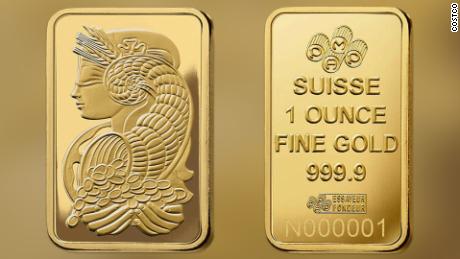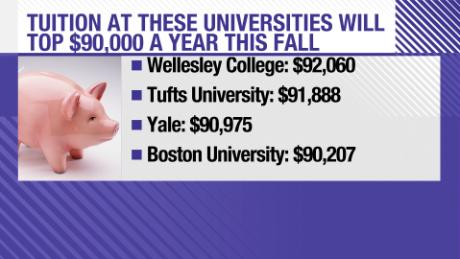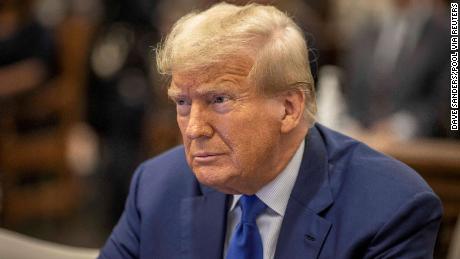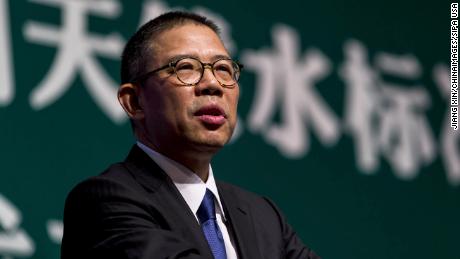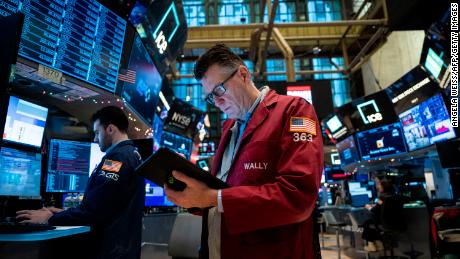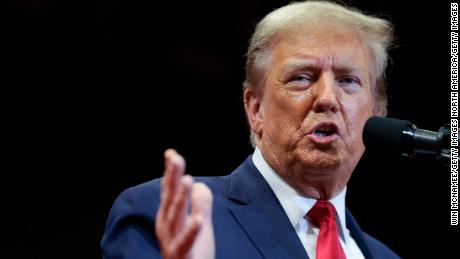New York (CNN)Most of the baseball caps sold in the United States are made in China, and President Donald Trump's trade war has made them 10% more expensive.
The tariff forced Missouri-based Cap America, a sports embroidery outfit that's bought most of its caps from China since 2001, to make changes. The company is trying out a new supplier in Bangladesh for some orders -- and after eating the full cost of the tariffs for months, CEO Phil Page also decided in January to raise prices on his hats.
Page and business owners across the country are waiting to hear how trade talks between US and Chinese negotiators progress when they meet this week in Beijing.
Trump has threatened to escalate the 10% tariff he's placed on $200 billion of Chinese goods to 25% if a deal isn't reached. But if talks go well, the tariffs might be lifted altogether.
Unlike the oil price embargo of the 1970s, which led to long lines at gas stations, the drama -- and the pain -- of Trump's China trade fight has so far been invisible to most Americans. The consumer price index, which tracks inflation on a basket of consumer goods like food and clothing, actually fell by 0.1 percent in December.
The administration strategically put the highest tariffs on imports mostly used in the production of other items, like semiconductors or refrigerators. The latest round, which came later in the year, did include a variety of consumers goods, ranging from luggage to baseball gloves, but the tariff rate is lower.
The duty isn't passed on to consumers if importers or retailers decide to absorb some of the added cost -- which many, like Page, did heading into the holiday season.
In a recent survey by the National Association for Business Economics, 94% of businesses said they have not raised prices because of changes in trade policy. Most haven't delayed hiring or other investments, either.
By many measures, the US economy appears strong. Job creation boomed in January. Manufacturing jobs, specifically, have been growing for two years and wages were up, too.
China's retaliatory tariffs have hit US farmers harder than consumers, prompting the administration to offer aid to soybean, corn, dairy, wheat, cotton, sorghum and pork producers, who received direct payments from the US Department of Agriculture. And China agreed to start buying soybeans again after the last time Trump and Chinese President Xi Jinping met. Most farmers, though, say the aid payments didn't make them whole.
There are some signs that the tariffs could be starting to have more of an effect on the US economy.
Americans imported less in November for the first time since Trump began putting tariffs on Chinese goods in July, according to a report released last week. More recent data has been delayed because of the government shutdown.
And consumer sentiment dropped to its lowest level of Trump's presidency in January, likely dragged down by trade tensions as well as rising sings of a global economic slowdown, a volatile stock market, and the government shutdown.
Sales were down through the holiday season and January at the Luggage Shop of Lubbock in Texas, where owner Tiffany Zarfas Williams is getting emails from vendors about price increases almost every day now. Backpacks, briefcases and luggage have all been hit with a 10% tariff.
Not only did she have to raise prices, but many of her customers are farmers who are struggling with tariffs on their exports, and she worries they may have less money in their pockets to spend.
"If we all need to take one for the team, we can weather a 10% increase. But I just want to make sure the tariffs are going to get us to the end goal," Zarfas Williams said.
The Trump administration has used the tariffs as a tool to bring Chinese officials to the negotiating table and address what it sees as unfair trade practices, like intellectual property theft from American businesses and forced technology transfers in exchange for doing business in China.
The United States has fought China over these issues for years and many in the business community believe they need to be fixed.
"I think the big difference under the Trump administration is that we've shifted to a more combative US-China relationship," said Phil Levy, a senior fellow at the Chicago Council on Global Affairs who served as a senior economist for trade under President George W. Bush.
"They want to isolate China as much as possible," he said.
In the meantime, business owners like Cap America's Page are doing their best to work around the uncertainty. Page actually increased his imports from China last year, in an attempt to get ahead of potential new tariffs, and wound up buying a new warehouse to store the extra inventory.
"It's just difficult to gauge what his administration will do," he said. "They're so unpredictable."







